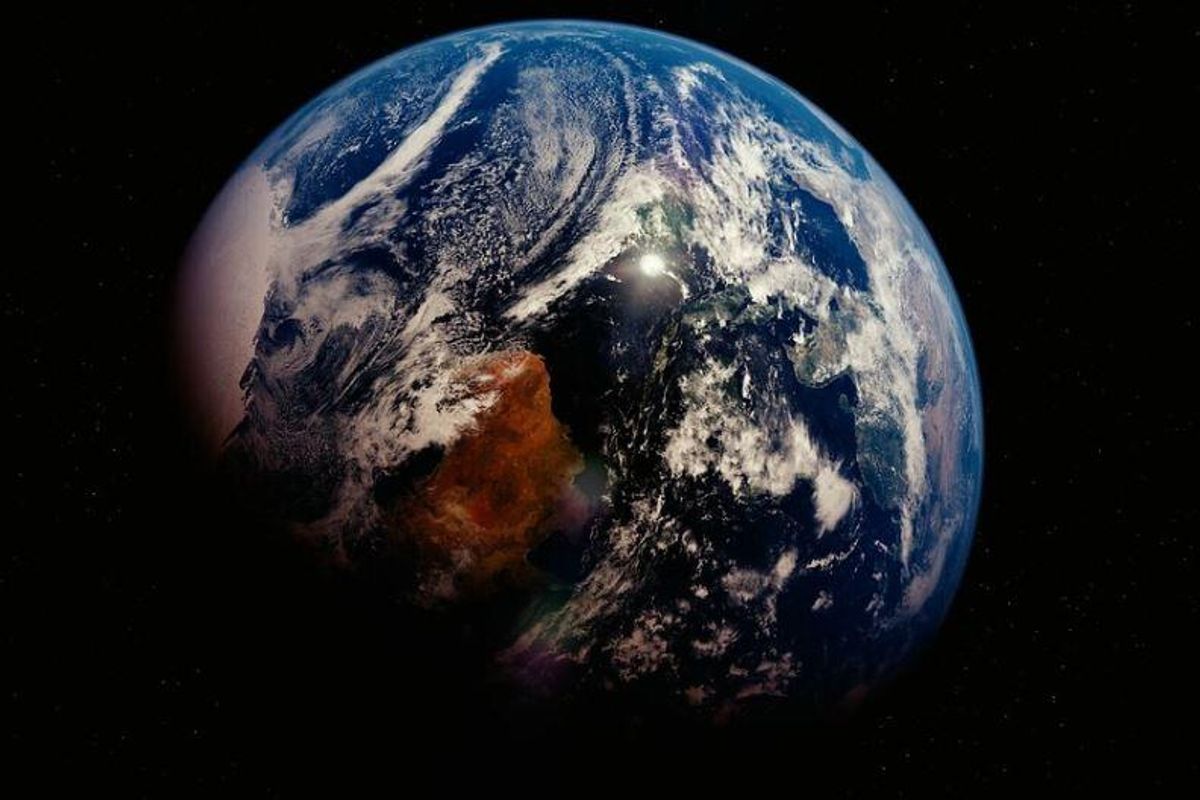Seeing Earth from space can truly transform one’s perspective, potentially inspiring change for humanity. Sixty-one years ago, Yuri Gagarin was the first human to venture into space, likely becoming the pioneer of the “overview effect,” a phenomenon where seeing Earth from a distance highlights its oneness—free of visible borders and devoid of racial, religious, or economic conflicts.

From this vantage point, Earth’s issues seem insignificant, with the planet appearing as one interconnected entity. Ron Garan, an astronaut, author, and humanitarian, shared his insights in an enlightening interview with Big Think. He believes that adopting this planetary perspective could help solve many challenges facing humanity.
Garan has spent a significant 178 days in space, covering over 71 million miles through 2,842 orbits. He observed the Earth’s fragility, saying, “When I looked out the window of the International Space Station, I saw the paparazzi-like flashes of lightning storms and the dancing curtains of auroras. I noticed our planet’s atmosphere is incredibly thin, and realized this delicate layer sustains all life on Earth.”
He saw an “iridescent biosphere teeming with life” but didn’t see the economy. Garan realized that by treating everything, even our planet’s life-support system, as a subsidiary of the global economy, we are living a big lie. Humanity needs a shift in priorities.
“We need to transition from economy first to planet first. This shift is necessary for our evolutionary process,” he added. Garan believes humanity is paying a high cost for not adopting a broader planetary perspective, and it’s why we struggle to solve many issues. Economic growth might elevate living standards for some but can be detrimental to Earth’s sustainability, leaving us metaphorically cutting off our nose to spite our face.
Actor William Shatner echoed similar feelings after his journey into space. “It was among the strongest grief I have ever encountered,” Shatner expressed, contrasting the coldness of space with Earth’s nurturing warmth. He lamented the ongoing destruction caused by human activity.
“We won’t have peace until we recognize the interconnected structure of reality,” Garan stated. Despite the grim surface-level situation on Earth, he remains hopeful about humanity’s potential to evolve in consciousness and embrace a more comprehensive reality. “When we move beyond the us-vs-them mindset to embrace the universe’s multi-dimensional reality, we will no longer float in darkness; this is our true calling.”
This profound insight urges us to consider the bigger picture and strive for a future aligned with our potential as an evolved society.